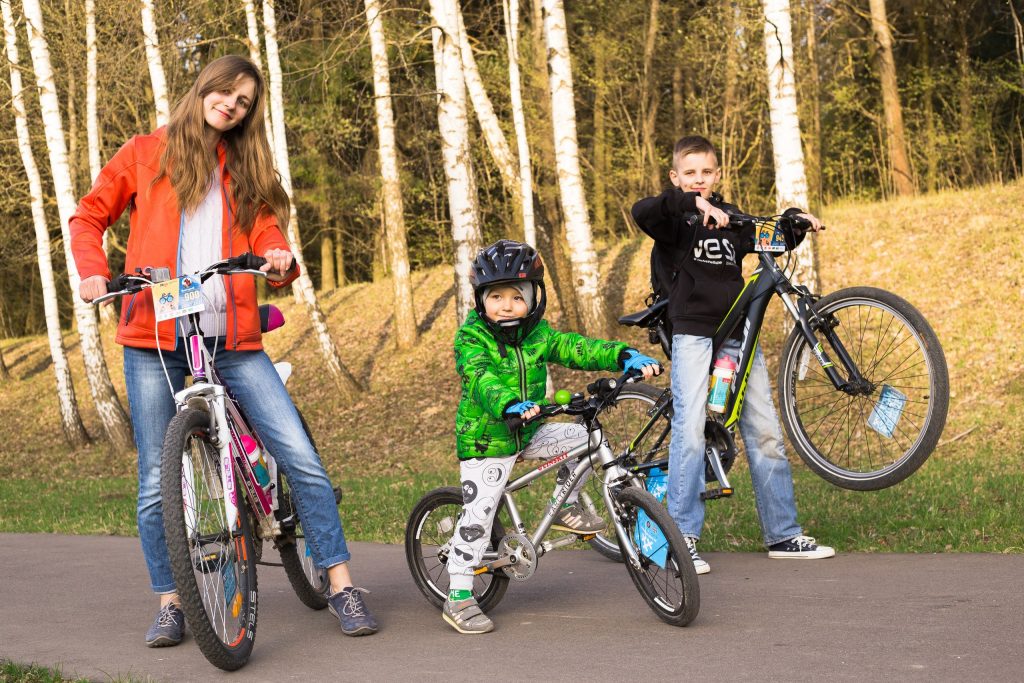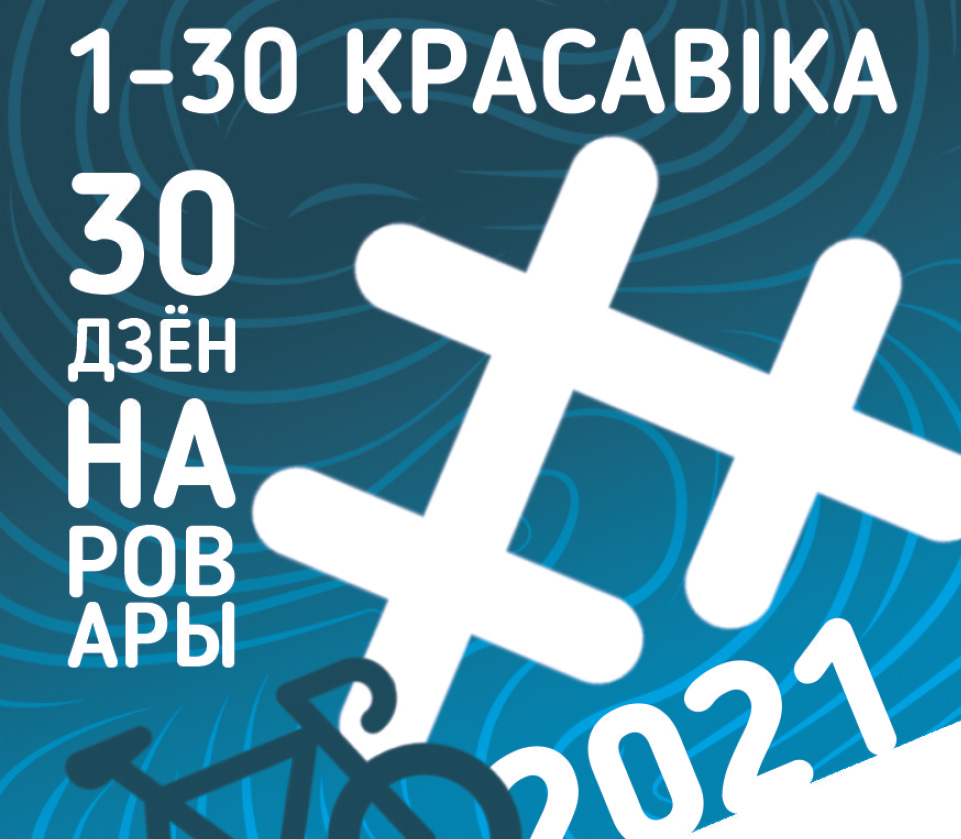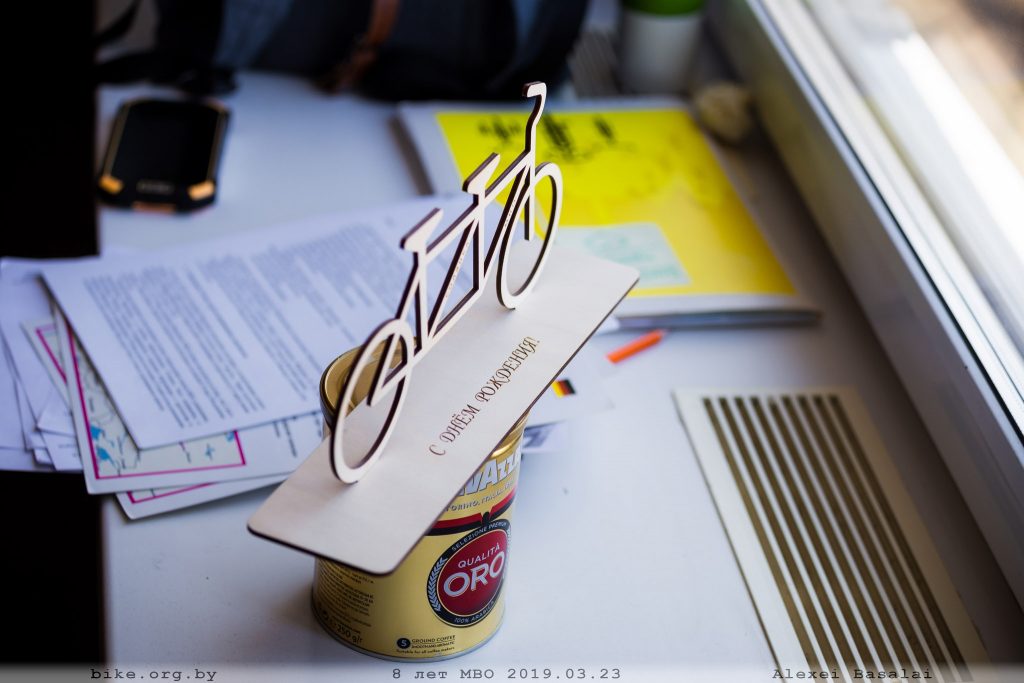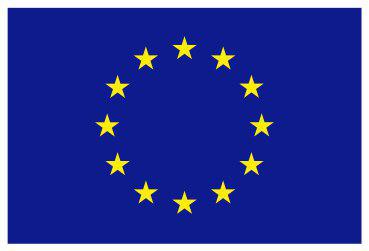The creation of a bicycle association, the holding of a bicycle parade and the celebration of the bicycle day in Belarus, among other issues, were discussed at the forum of bicycle activists in Grodno.
The creation of a bicycle association, the holding of a bicycle parade and the celebration of the bicycle day in Belarus, among other issues, were discussed at the forum of bicycle activists in Grodno.
The organizers - the local initiative “Velogrodno” - are gathering the cycling activists of Belarus for the second time. In addition to Grodno residents, the forum was attended by bicycle activists from Brest, Mogilev, Gomel, Lida, Minsk. A welcome letter to the forum was received from colleagues from the Polish cycling club "Eskapada" from Bialystok.
The forum voiced the problems faced by cyclists in certain regions and throughout the country as a whole. The forum participants talked about the state of the cycling infrastructure in their regions, what work is being done to improve it, what are the results, what are the plans for the future.
Grodno: "Provide yourself a parking"
Activist of the Velogrodno initiative Julia Koleda told about the public campaign "Provide yourself a parking", aimed at increasing the number of bicycle parking in Grodno.
The problem is relevant not only for Grodno. Cyclists have to strap their two-wheelers to trash bins, railings near shops, or even storm bars - because there is nowhere else. And sometimes bicycle parking is installed in places where no one uses them.
First, it was necessary to find out the need for bicycle parking in Grodno. An interactive service was created on the Velogrodno website, where users could mark points on the city map where bicycle parking would be appropriate, or add their voice to the points already marked. There were 121 such points. At that time there were only 21 bicycle parking lots in the city.
Velogrodno activists sent out more than 80 letters to business entities, as well as to the city executive committee (they haven’t replied from there yet). The letters said the following: as a result of a public opinion poll, it turned out that the public needs a bicycle parking near your facility (even its drawing was attached).
There were as many as 6 replies, mostly unsubscriptions. For example, the Grodno zoo replied that they ... do not have a place for a bicycle parking (this is when the area of the zoo is more than 5 hectares).
But there were also those who agreed to install a bicycle parking - for example, an ice rink, traffic police. The Euroopt network promised to put bicycle parking near their new stores.
- Shop owners often replied that they did not even think about bicycle parking. Or they said: let there be a lot of cyclists in the city first, and only then we will install parking lots. Although in reality it should be just the opposite, - said the Velogrodno activist Alexander Fedotov.
Brest: Attempt to Break Through the Border by Bicycle
In Brest, the youth organization "Dzedzich" launched a campaign "For Bicycle-Brest" in 2010.
“Our goal is to move freely around the city of Brest by bicycle along the main roads, to install bicycle parking lots in crowded places (universities, large shops and markets), as well as to cross the border at the Varshavsky Most checkpoint on a bicycle,” said a volunteer of the campaign “For velo-Brest " Elena Kokhovich.
According to her, the main problems of Brest cyclists are high curbs, lack of bike parking and bike paths.
For two years, within the framework of the campaign "For Bicycle-Brest" 10 social videos were shot, together with the "Kola-bok" club, proposals were drawn up and generally accepted by the city executive committee for the general development plan of the city for the development of cycling infrastructure. In Brest, a series of seminars was held for schoolchildren on the prevention of road accidents on a bicycle.
One of the goals of the “For Bicycle-Brest” campaign is to achieve the right to cross the Belarusian-Polish border on a bicycle at the “Varshavsky Most” checkpoint. The "breakthrough" to Poland was made, but the cyclists were allowed to pass as an exception. In the near future, free movement on a bicycle across the Belarusian-Polish border (with the exception of crossing in Belovezhskaya Pushcha) is not expected yet.
By the way, there are other cycling initiatives in Brest - the Cola-bok sports and tourist club, the Brest-Cycling campaign, the NV Dranko club. Club "Cola-bok" organizes tourist cycling trips around Brest and its environs to explore the local historical sights.
In addition, Cola-Bok also contributes to the improvement of sidewalks for cyclists. Representatives of the club agreed with the city executive committee, which instructed the road maintenance departments to make "ramps" from asphalt to high curbs.
Mogilev and Gomel: cycling initiatives ripen
There are also cycling initiatives in Mogilev and Gomel, but they are not officially registered yet. For example, the Mogilev club "Cadence" has a more sporting than public orientation. The Velo-Gomel initiative is still unofficial, but it actively organizes bike rides and sports competitions, and participates in international bike rides.
If there are three bike paths in Mogilev, then in Gomel there are none at all. Therefore, Gomel bicycle activists are planning to register so that, on behalf of the public organization, they can seek to improve the bicycle infrastructure.
Minsk: the concept of development of cycling has been adopted
In the mid-2000s, the popularity of bicycles began to surge in Minsk. Cyclists became visible and started reporting problems. Today in the capital there are up to 300 thousand bicycles, but only about 5 thousand are actively used. What prevents people from switching to a bicycle?
According to the chairman of the board of the NGO "Minsk Cycling Society" Evgeny Khoruzhego, among the main problems of the development of cycling, active cyclists distinguish curbs, lack of bike parking, quality of roads and sidewalks, lack of bike paths, ratio of drivers / pedestrians, etc. Ordinary townspeople name the problem of bicycle storage, lack of cycling infrastructure, danger from transport, discomfort when traveling, mentality problems (undignified).
The concept of the development of cycling in Minsk is intended to help eliminate these problems. By order of the traffic police, it was developed by BNPP with the participation of the Minsk Cycling Society in 2010 and adopted by the Minsk City Council in 2011.
As part of the development of infrastructure, firstly, a backbone network should be created - capital isolated bike paths similar to the "cycle track" along the Svisloch, and secondly, the main network - sidewalks adapted for cycling, as well as park, tourist routes.
Representatives of the Minsk Cycling Society are monitoring the construction of roads in the capital, informing officials about the facts of non-compliance with the norms of a barrier-free environment.
What needs to be done to cycle Belarus
On the second day of the forum, participants worked in groups, discussing various aspects of the main topic - what needs to be done to develop the cycling movement in Belarus, popularize bicycles and create a positive image of a two-wheeled vehicle.
We could not help remembering that 2013 was declared the Year of Green Tourism in Belarus. Therefore, next year, bicycle activists intend to conduct a number of actions and campaigns aimed at popularizing the bicycle.
It will be not only the traditional opening and closing of the season, the day without a car on September 22. It was suggested that consideration be given to holding a special bicycle day across the country. There are also plans to hold a mass bike ride and a bike parade. In addition, in order to promote and protect the interests of cyclists at the republican level in Belarus, it was decided to create a cycling association, which will include cycling initiatives from all regions of the country.
Cycling in Belarus is slowly but surely gaining momentum, and this is no coincidence. After all, more people all over the world choose a bicycle because it is convenient - they are lucky "from door to door", there are no problems with parking. It is a fast and cheap way to travel (especially when compared to a private car). The bike allows you to keep fit, gives you a feeling of freedom and communication with new and old cycling friends.
Cities are developing cycling, because it is a solution to problems with traffic jams and parking, improving the health of citizens and improving the environment.







